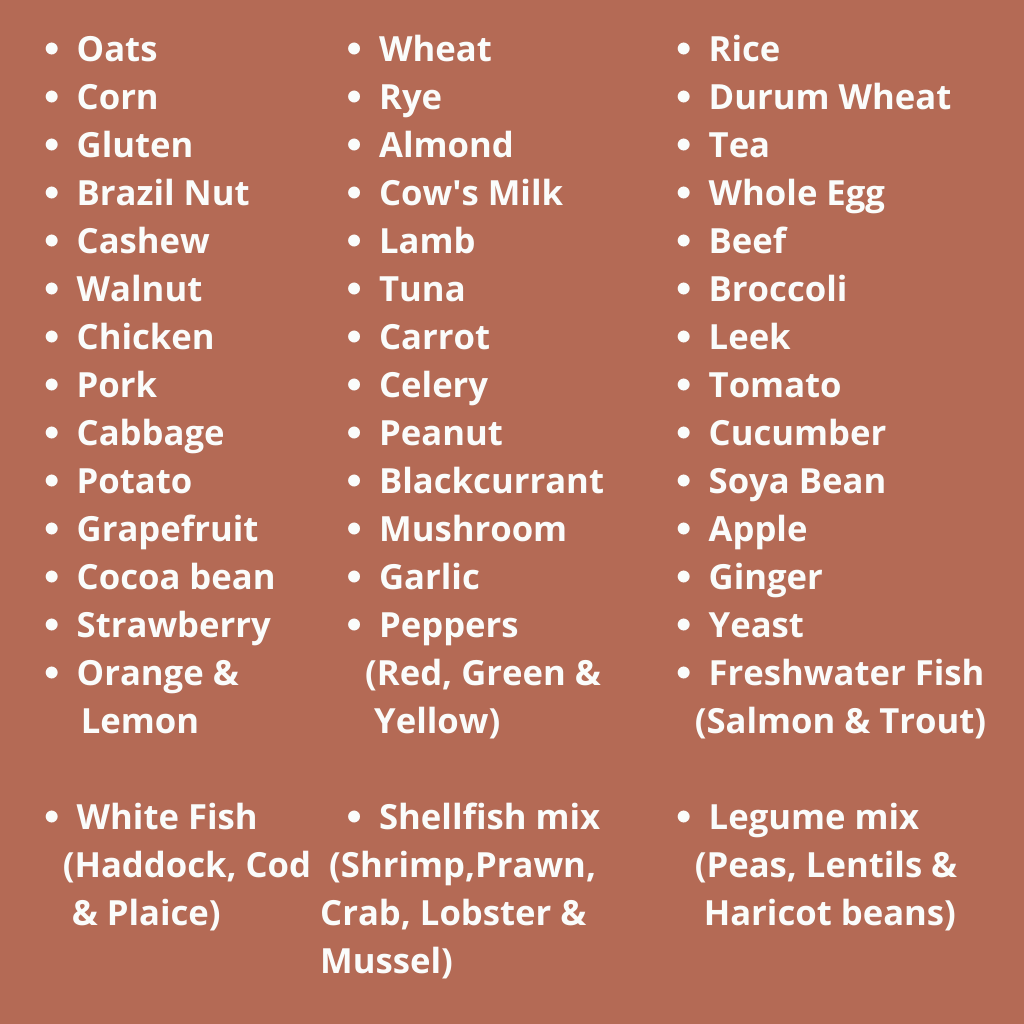Important Notice: Last orders will be taken on November 10th. The shop will be closed until February, with orders resuming and posting once per week until July.


What is a Food Intolerance?
Having a food intolerance means your body is sensitive to a certain food. This means the digestive system has a hard time breaking it down and assimilating it. Over time with repeated exposure this can cause damage in the gut. This can lead to more persistent and chronic symptoms depending on the person. Having a food intolerance is different to having a food allergy. A food intolerance causes a slow accumulative reaction whereas a food allergy causes an immediate life threatening reaction. They are two different reactions in the body requiring different testing. It can be difficult to identify a food intolerance without getting a food intolerance test in a lot of cases. It can get to a point where no matter what you eat you are getting some reactions. This is due to the damage in the gut from long term exposure to the foods you are sensitive to. The good news is that once they are identified with a food intolerance test you can work on healing the damage and supporting the digestive system. You may be able to enjoy these foods again in moderation depending on the person.
Testing with Bia Beo
12 week programme
Doing the food intolerance test and getting the results is only half of the process. The most important thing to do is focus on healing the damage in the gut and strengthening the digestion. Included in the food intolerance test is a 90min in depth holistic health consultation and a 12 week plan to follow.
In the Bia Beo practice we approach everything in a holistic way using Nutritional Therapy & Herbal Medicine to support the body in its healing. In most cases it is not sufficient to just remove the foods and expect everything to go away. Particularly in cases where it has been going on for quite some time, there needs to be more support for healing. A significant amount of damage has usually occurred and there is inflammation throughout the body that needs to be addressed. For this reason we recommend a 12 week elimination diet with a personalised diet and lifestyle plan along with probiotics and individualised herbal remedies to support the healing process. We highly recommend one of our support packages to ensure a successful 12 week programme.
At the end of the 12 weeks we do a re-introduction of the offending foods in a very slow and controlled manner to allow you to know exactly what foods you can tolerate again in moderation or what foods need to be avoided. This allows you to gain a greater understanding of your body and how certain foods effect you, giving you total control of symptoms going forward.
Signs of Food Intolerance:
Signs of food intolerances differ from person to person, however a very common indicator would be digestive issues such as IBS, bloating, acid reflux, diarrhoea, constipation, excessive gas and nausea. Other symptoms we commonly see related to food intolerances are skin issues such as rashes, eczema, acne and psoriasis. Other common symptoms that you wouldn’t think are related include fatigue, low mood, foggy brain, chest pain, fast pulse and heart palpitations.
Simple Pin prick blood test
The equipment to take your blood sample will be posted out to you with a stamped and addressed envelope to be returned for testing.
The food intolerance test we use is the Nutricentric Healthcare Food Detective Pro and is based on Elisa antibody detection technology. It is registered as an in vitro Point of Care diagnostic test with EU & Irish health authorities. The test is a simple finger prick blood test which is quick and easy to use. The test will show raised IgG’s in the blood against foods you are sensitive to and are causing this immune response. We use this method of testing as we feel that blood testing is more accurate than hair analysis or Bio-resonance testing.
List of Foods Tested


